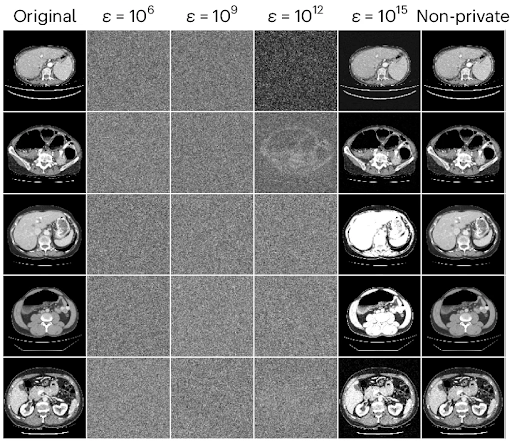SACRAMENTO, Calif. — President Donald Trump is vowing a new approach to getting homeless people off the streets by forcibly moving those living outside into large camps while mandating mental health and addiction treatment — an aggressive departure from the nation’s leading homelessness policy, which for decades has prioritized housing as the most effective way to combat the crisis.
“Our once-great cities have become unlivable, unsanitary nightmares,” Trump said in a presidential campaign video. “For those who are severely mentally ill and deeply disturbed, we will bring them to mental institutions, where they belong, with the goal of reintegrating them back into society once they are well enough to manage.”
Now that he’s in office, the assault on “Housing First” has begun.
White House officials haven’t announced a formal policy but are opening the door to a treatment-first agenda, while engineering a major overhaul of the housing and social service programs that form the backbone of the homelessness response system that cities and counties across the nation depend on. Nearly $4 billion was earmarked last year alone. But now, Scott Turner, who heads Trump’s Department of Housing and Urban Development — the agency responsible for administering housing and homelessness funding — has outlined massive funding cuts and called for a review of taxpayer spending.
“Thanks to President Trump’s leadership, we are no longer in a business-as-usual posture and the DOGE task force will play a critical role in helping to identify and eliminate waste, fraud and abuse and ultimately better serve the American people,” Turner said in a statement.
Staffing cuts already proposed would hit the part of the agency overseeing homelessness spending and Housing First initiatives particularly hard. Trump outlined his vision during his campaign, calling for new treatment facilities to be opened on large parcels of government land — “tent cities where the homeless can be relocated and their problems identified.” They could receive treatment and rehabilitation or face arrest. Now in office, he has begun to turn his attention to street homelessness, in March ordering Washington, D.C., to sweep encampments, potentially separating homeless people from their case managers and social service providers, derailing their path to housing.
The administration is discouraging local governments from following the federal policy, telling them it will not enforce homelessness contracts “to the extent that they require the project to use a housing first program model.” And, in a recent order “reducing the scope of the federal bureaucracy,” Trump slashed the U.S. Interagency Council on Homelessness, shrinking the agency responsible for coordinating funding and initiatives between the federal government, states, and local agencies, known as Continuums of Care.
“Make no mistake that Trump’s reckless attacks across the federal government will supercharge the housing and homelessness crisis in communities across the country,” Democratic U.S. Rep. Maxine Waters of Los Angeles said in response to the order.
Support Without Forced Treatment
Housing First was implemented nationally in 2004 under the George W. Bush administration to combat chronic homelessness, defined as having lived on the streets with a disabling condition for a long period of time. It was expanded under President Barack Obama as America’s plan of attack on homelessness and broadened by President Joe Biden, who argued that housing was a basic need, critical to health.
The policy aims to stabilize homeless people in permanent housing and provide them with case management support and social services without forcing treatment, imposing job requirements, or demanding sobriety. Once housed, the theory goes, homeless people escape the chaos of the streets and can then work on finding a job, taking care of chronic health conditions, or getting sober.
“When you’re on the streets, all you’re doing every day is figuring out how to survive,” said Ann Oliva, CEO of the National Alliance to End Homelessness. “Housing is the most important intervention that brings a sense of safety and stability, where you’re not just constantly trying to find food or a safe place to sleep.”
But Trump wants to gut taxpayer-subsidized housing initiatives. He is pushing for a punitive approach that would impose fines and potentially jail time on homeless people. And he wants to mandate sobriety and mental health treatment as the primary homelessness intervention — a stark reversal from Housing First.
The shift has ignited fear and panic among homelessness experts and front-line service providers, who argue that forcing treatment and criminalizing homeless people through fines and jail time simply doesn’t work.
“It’s only going to make things much worse,” said Donald Whitehead Jr., executive director of the National Coalition for the Homeless. “Throwing everybody into treatment programs just isn’t an effective strategy. The real problem is we just don’t have enough affordable housing.”
Trump got close to ending Housing First during his first term when he tapped Robert Marbut to lead the U.S. Interagency Council on Homelessness in 2019. Marbut pushed for mandating treatment and reducing reliance on social services, while curtailing taxpayer-subsidized housing. He argued that forcing homeless people to get sober and enter treatment would help them achieve self-sufficiency and end their homelessness. But covid-19 stalled those plans.
Now, Marbut said, he believes the president will finish the job.
“Trump knows that what we need to do is get funding back to treatment and recovery,” Marbut said. “The Trump administration is laser-focused on ending Housing First. They realized it was wrong the first time and that’s why I was selected to change it. They still realize it’s wrong.”
Trump and administration officials did not respond to questions from KFF Health News. A request to interview Turner was not granted. Project 2025’s “Mandate for Leadership,” a conservative policy blueprint from some of Trump’s closest advisers, explicitly calls for an end to Housing First.
Under Attack
Housing First is under attack not only from Republicans who have long criticized taxpayer-subsidized housing for homeless people, but also from Democrats responding to public frustration over homeless encampments multiplying around the nation. Last year, the federal government estimated that more than 770,000 people in the U.S. were homeless, a record high. That was up 18% from 2023. And while housing grows increasingly unaffordable, homeless camps have exploded, spilling into city parks, crowding sidewalks, and polluting sensitive waterways, despite unprecedented public spending.
Already, cities and states, liberal and conservative, are cracking down on street homelessness and targeting the mental health and addiction crisis. This is true even in deep-blue states like California, where Gov. Gavin Newsom has created a “CARE Court” initiative that can mandate treatment even though housing isn’t always available and threatened to withhold funding from cities and counties that don’t aggressively clear encampments.
San Francisco Mayor Daniel Lurie has proposed ending harm reduction for drug users. Los Angeles Mayor Karen Bass is prioritizing encampment sweeps even though the promise of housing or shelter is elusive. And San Jose Mayor Matt Mahan won initial City Council support for plans to arrest people who refuse shelter three times in 18 months and to divert permanent housing funding to pay for an expansion of homeless shelters.
Mahan believes liberals and advocates have been too “purist” because housing isn’t being built fast enough, while investments in shelter and treatment have been inadequate. “It can’t only be about Housing First,” he said.
Homelessness crackdowns have exploded since the U.S. Supreme Court made it easier for elected officials and law enforcement agencies to fine and arrest people for living outside. Since June, roughly 150 laws imposing fines or jail time have been passed, with about 45 in California alone, said Jesse Rabinowitz, campaign and communications director for the National Homelessness Law Center.
Rabinowitz and other experts say both Republicans and Democrats are undermining Housing First by criminalizing homelessness and conducting encampment sweeps that hinder the ability of front-line workers to get people into housing and services.
However, there’s disagreement on whether to entirely dismantle the policy. Liberal leaders want to maintain existing streams of housing and homelessness funding while expanding shelters and moving people off the streets. Conservatives blame Housing First for the rise in homelessness and are instead pushing for mandatory treatment and cutting housing subsidies.
“I used to think it was just a waste of taxpayer money because it wasn’t treatment-based, but now I think it actually enables people to remain homeless and addicted,” Marbut said of the Housing First approach. He favors requiring behavioral health treatment as a prerequisite to housing.
Evidence shows Housing First has been successful in moving vulnerable, chronically homeless people into permanent housing. For instance, a systematic review of 26 studies indicated that, compared with treatment-first, “Housing First programs decreased homelessness by 88%.”And the approach has shown remarkable improvements in health, reducing costly hospital and emergency room care.
Experts say Housing First has been severely underfunded and implemented unevenly, with some homelessness agencies taking federal money but not providing appropriate services or housing placements.
“Making it the broad policy to all homelessness leaves it vulnerable to being attacked the way it’s currently being attacked,” said Philip Mangano, a Republican who spearheaded the development of Housing First as the lead homelessness adviser to George W. Bush. “The truth is it’s a mixed bag. For some people like those who are using substances, the evidence just isn’t there yet.”
Others say it has been ineffective in some places because of rampant misspending, abuse, and a lack of accountability.
“This works when it’s done right,” said Marc Dones, a policy director for homelessness initiatives at the University of California-San Francisco, arguing that housing can save lives and lower spending on costly health care. “But I think we have been too polite and too nice for too long about some real incompetence.”
Jeff Olivet, who succeeded Marbut at the U.S. Interagency Council on Homelessness under Biden, said Marbut and Trump’s positions are misguided. He argues that Housing First has worked for those who have gotten indoors, yet the number of people falling into homelessness outpaces those getting housing. And he says there was never enough money to provide housing and supportive services for everyone in need.
“Housing First is not just about sticking somebody in an apartment and hoping for the best,” Olivet said. “It’s really about providing stable housing and access to health care, mental health and substance use treatment, and to support people, but not forcing it on people.”
This article was produced by KFF Health News, which publishes California Healthline, an editorially independent service of the California Health Care Foundation.
KFF Health News is a national newsroom that produces in-depth journalism about health issues and is one of the core operating programs at KFF—an independent source of health policy research, polling, and journalism. Learn more about KFF.
USE OUR CONTENT
This story can be republished for free (details).











